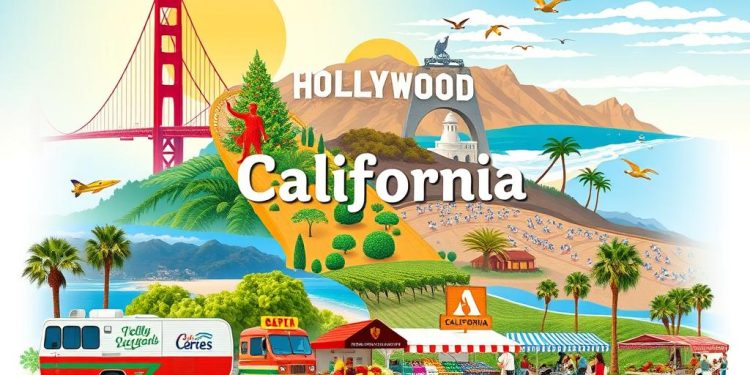The rich heritage of Louisiana is a vibrant tapestry interwoven with Cajun and Creole cultures. This lively amalgamation of traditions, languages, and customs stems from a history deeply rooted in French influence. As you explore this unique region, you’ll find that the bayous not only boast beautiful landscapes but also serve as a backdrop for the profound cultural exchange which shaped the lives of its inhabitants.
Beginning in the early 1600s, the Acadians migrated from Canada, settling in what is now Louisiana after being displaced from their homeland due to conflicts with the British. By the early 1800s, around 4,000 Acadians had made their way to Louisiana, each contributing to the vibrant food, music, and customs that define this area today.
From community festivals showcasing delectable Cajun cuisine to the infectious rhythms found in local music venues, tourism in Louisiana thrives on these cultural riches. Here, you will witness the evolution of a unique identity that draws from multiple influences, creating a living heritage that remains both grounded in tradition and open to new experiences.
Exploring Cajun Culture
The Cajun culture embodies a rich tapestry of history, rooted in the profound experiences of the Acadians who settled in Louisiana after being exiled from their homeland in Acadia. This vibrant culture is not only shaped by the enduring French influence but also enriched by Native American, African American, Spanish, and English heritages. The story of the Cajun community reflects resilience and an unwavering commitment to family ties that have transcended generations.
Roots of the Cajun People
Cajun history traces back to the 18th-century expulsion of Acadians from Canada. In their search for a new home, they migrated south, ultimately shaping the cultural landscape of Louisiana. Living primarily in Acadiana, many Cajuns continue to embrace the lifestyle and customs that arose from their diverse ancestry. The natural beauty of southern Louisiana serves as both inspiration and backdrop for Cajun traditions including food, music, and community gatherings. The traditional Mardi Gras festival stands out, featuring participants gathering ingredients for gumbo and culminating in the lively event of capturing a runaway chicken.
Core Values and Characteristics
The essence of Cajun culture lies in its core values, emphasizing community and family. Many individuals reside near their extended families, creating a strong support network that thrives on shared experiences and love. Spirituality permeates daily life, where the Cajuns hold a deep appreciation for the metaphysical aspects of existence, prioritizing life’s joys over material gain. This outlook fosters the celebrated joie de vivre, or joy of living, which is palpable in their customs, interactions, and daily celebrations. In certain areas, over half of the population still communicates in Cajun French, enriching the dialectal depth that continues to thrive today.
| Aspect | Description |
|---|---|
| Origins | Descendants of French Canadian Acadians displaced in the 18th century. |
| Languages | Cajun French or French Creole may be spoken as a first language in some communities. |
| Community Events | Involvement in local celebrations, particularly the traditional Mardi Gras festival. |
| Cultural Sites | Exhibits at the Acadian Cultural Center and Acadian Memorial highlight Cajun history. |
| Musical Heritage | Local genres include Cajun and zydeco, celebrated through live performances in Acadiana. |
| Family Connections | Extended families often live in close proximity, enhancing community support. |
Creole Culture and Its Influence
Creole culture represents a vibrant and multifaceted aspect of Louisiana’s rich tapestry of cultural identity. Emerging from a unique blend of French, Spanish, African, and Native American influences, Creole heritage is deeply rooted in the history of colonial New Orleans and its dynamic communities. This fusion not only manifests in the food but also permeates music, art, and social customs, contributing to the extensive cultural landscape of Louisiana.
Defining Creole Identity
The essence of Creole identity lies in its diversity and urban sophistication. Creoles typically trace their lineage back to the colonial era, setting them apart from Cajuns, whose heritage stems mainly from French-Acadian ancestry. This distinction highlights key cultural differences, particularly in lifestyle and traditions. For instance, Creoles often emphasize an appreciation for refined culinary arts, notably showcasing sophisticated dishes. The culinary experience encapsulates rich flavors and techniques that reflect their unique cultural identity.
Similarities and Differences with Cajun Culture
While Cajun and Creole cultures share French roots, their expressions diverge significantly. Both communities value family and food, yet they differ in their lifestyles and customs. Cajuns tend to embrace rural life, showcasing simplicity and communal gatherings, especially around seafood preparations. In contrast, Creole culture presents a more urban and diverse identity, with a broader mix of influences that enrich day-to-day experiences.
Language further encapsulates their differences; while Cajun French remains prominent in Cajun communities, Creole French blends with English and varies widely. This complex interplay of cultural elements illustrates how Cajun vs. Creole showcases more than just food preferences or music styles. It reflects a classic portrait of Louisiana’s evolving cultural identity.
The Vibrant City of New Orleans
New Orleans stands out as the cultural heartbeat of Louisiana. The city is renowned for its vibrant music scene that has shaped not only local culture but also influenced genres worldwide. Jazz, which originated here, continues to flourish, showcasing the talents of remarkable musicians and creating a captivating atmosphere that attracts visitors from all corners of the globe.
Cultural Hotspot for Music and Cuisine
While the music scene steals the spotlight, the culinary offerings of New Orleans play an equally important role in its cultural identity. The city boasts a unique blend of Creole and Cajun influences, reflected in its diverse cuisine. Travelers will find an array of delightful dishes available at local eateries, each promising an authentic taste of Louisiana.
Whether you’re indulging in gumbo, relishing jambalaya, or savoring a sweet beignet, the city’s cuisine delivers a true taste of its rich heritage. Each dish tells a story, highlighting the traditions passed down through generations.
Furthermore, the vibrant atmosphere extends to numerous cultural events celebrated throughout the year. Festivals celebrating music, food, and community spirit bring the streets to life. Events like the New Orleans Jazz & Heritage Festival showcase the city’s musical richness while food festivals allow you to explore its diverse culinary landscape. Together, these elements make New Orleans a vibrant place where music and cuisine intertwine seamlessly.
| Aspect | Description |
|---|---|
| Music Scene | Home to jazz and numerous live music venues that celebrate a variety of genres. |
| Cuisine | A fusion of Creole and Cajun flavors created from a rich culinary heritage. |
| Cultural Events | Festivals that showcase music, food, and local traditions, enhancing community spirit. |
| Local Dishes | Signature dishes include gumbo, jambalaya, and beignets. |
Cajun Cuisine: A Taste of Louisiana’s Heritage
Cajun cuisine stands as a flavorful testament to Louisiana’s unique food culture. Blending local ingredients with traditional cooking methods, this cuisine reflects the rich history and community aspects of the Cajun people. With an emphasis on sustainable practices and the use of fresh produce, Cajun food tells a story of the land and its resources. Diners often find themselves immersed in vibrant meals that highlight key ingredients, fostering communal connections during shared meals.
Key Ingredients and Cooking Traditions
Some key ingredients define Cajun cuisine. Staples like okra, onions, and crawfish feature prominently in many dishes, shaping the culinary identity of Louisiana. Traditional cooking methods involve communal gatherings, where families enjoy crawfish boils or pig roasts. This emphasis on community strengthens the bonds between friends and families and nurtures a rich culture of sharing meals and stories. Notable cooking traditions include the “Holy Trinity” of vegetables, consisting of onions, bell peppers, and celery, which forms the foundation for numerous Cajun dishes.
Popular Dishes to Try
When exploring Cajun cuisine, several must-tries tantalize the taste buds. Popular Cajun dishes include:
- Gumbo: A hearty stew often loaded with a variety of meats, seafood, and the Holy Trinity, served over rice.
- Jambalaya: A one-pot dish filled with rice, proteins, and spices, showcasing the diverse flavors of Louisiana.
- Crawfish Étouffée: A creamy and rich dish made with crawfish, served over rice, ideal for seafood enthusiasts.
Each dish embodies the culture’s dedication to flavor, tradition, and community interaction. The historical influence of various immigration waves, agricultural practices, and local flavors has shaped these culinary treasures. Whether enjoying a meal at a restaurant or cooking at home, Cajun cuisine delivers unforgettable culinary experiences that resonate with Louisiana’s heritage.
| Dish | Main Ingredients | Preparation Method |
|---|---|---|
| Gumbo | Seafood, meats, okra, Holy Trinity | Slow-cooked stew |
| Jambalaya | Proteins, rice, vegetables, spices | One-pot dish |
| Crawfish Étouffée | Crawfish, cream, spices, rice | Simmered and served over rice |
Music and Celebrations in Louisiana
Louisiana’s rich tapestry of music and celebrations reflects its diverse cultural heritage. The influences of jazz resonate deeply within Cajun and Creole music, creating a soundscape that defines the state. Cultural celebrations flourish, blending musical styles with traditions that unite communities across Louisiana.
The Role of Jazz in Cajun and Creole Traditions
Jazz plays a significant role in Louisiana’s cultural scene, influencing both Cajun music and Creole music. This vibrant genre emerged from a remarkable fusion of African, French, and Spanish musical elements. As you stroll through streets filled with the sounds of jazz, you encounter a lively atmosphere that encapsulates the spirit of Louisiana. Festivals throughout the year showcase this unique blend of genres, inviting you to experience the rhythm and joy that jazz brings to local celebrations.
Mardi Gras: A Festival of Culture and Community
Mardi Gras stands as the ultimate expression of Louisiana’s cultural celebrations. This festival symbolizes vitality through colorful parades, captivating music, and exquisite culinary delights. Drawn from Catholic traditions, Mardi Gras has evolved into a spectacular display that brings together locals and visitors alike. The festive season is marked by vibrant costumes, dynamic music performances, and the sharing of beloved regional dishes. The communal atmosphere during Mardi Gras illustrates how such cultural celebrations foster connections within the community, creating unforgettable moments filled with joy and spirit.
| Aspect | Jazz | Mardi Gras |
|---|---|---|
| Origin | Fusion of African, French, and Spanish styles | Rooted in Catholic traditions |
| Impact | Influences Cajun and Creole music | Showcases Louisiana’s cultural vitality |
| Community Involvement | Community festivals feature live performances | Brings locals and tourists together |
| Culinary Elements | N/A | Traditional food such as gumbo and jambalaya |
| Atmosphere | Dynamic and lively | Festive and joyous |
Conclusion
The rich tapestry of Louisiana heritage, woven through Cajun and Creole culture, offers a remarkable experience for anyone seeking adventure and connection. From the lively streets of New Orleans to the serene landscapes of Acadiana, you can immerse yourself in traditions that date back generations. This vibrant culture, characterized by its unique music, tantalizing cuisine, and deeply-rooted history, continues to evolve while retaining the essence of what makes Louisiana truly special.
As a tourist destination, Louisiana invites you to explore its diverse offerings. Engaging with the local customs, whether it’s enjoying a sumptuous bowl of gumbo or tapping your feet to the lively sounds of jazz, creates unforgettable memories that resonate long after your visit. Festivals like the Festival International de Louisiane showcase the dynamic blend of art and music that defines this region, attracting thousands each year who come to celebrate the best of Cajun and Creole influences.
In understanding both Cajun and Creole legacies, you open a gateway to a rich cultural heritage that is fundamental to the identity of Louisiana. Each encounter with this extraordinary culture enhances your appreciation and affection for the deep-rooted stories, vibrant lifestyles, and welcoming communities that make Louisiana a captivating place to experience and explore. Ultimately, embracing Louisiana’s heritage ensures that every moment spent here is steeped in the tradition and joy of its people.







